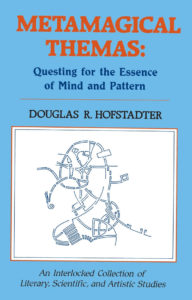
I try to stay out of political theory on this blog, but Vox Day’s essay on the differences between the “VHIQ” and the “UHIQ” struck me as intellectually interesting enough that I felt like exploring it further. Personally, I don’t know what my IQ is, so that means I am merely above average*, since only people with very/ultra-high IQ seem to be motivated to willingly take the test. VD lists a number of plausible qualitative traits, of which the following caught my eye:
VHIQ inclines towards binary either/or thinking and taking sides. UHIQ inclines towards probabilistic thinking and balancing between contradictory possibilities.
…
VHIQ is uncomfortable with chaos and seeks to impose order on it, even if none exists. UHIQ is comfortable with chaos and seeks to recognize patterns in it.
…
VHIQ is competitive. UHIQ doesn’t keep score.
VD later goes on to quote Wechsler, the founder of the IQ test, at length and summarizes:
Wechsler is saying quite plainly that those with IQs above 150 are different in kind from those below that level. He is saying that they are a different kind of mind, a different kind of human being.
The division into binary groups here – “normal human” (sub-150 IQ) and the Next (150+), and then at the next iteration between VHIQ and UHIQ, is confusing to me, particularly since it is IQ itself being used to classify people into the binary choices. In the comments, VD clarifies (?) that “It’s entirely possible for a 175 IQ to be VHIQ and for a 145 IQ to be UHIQ” but that just moves the binary classifying to a relative scale than an absolute one. Since he also asserts that you need to be at least +3 SD (ie, IQ of 145) to even qualify as VHIQ, it’s clear that the numbers do matter.
There’s a glaring circularity here that I am doing a poor job of articulating. I’ll just make note of it and move on.
VD’s excerpted passage from Wechsler is, however, nonsense. He created an empirical test, intended to assess “varying amounts of the same basic stuff (e.g., mental energy)” and then made it into a score. I have worked with neurologists before and they make the same category error that psychologists like Wechsler do, in ascribing quantitative rigor to tests like the Expanded Disability Status Scale (EDSS). Just because you can ask someone a bunch of qualitative questions and then give them a “score” based on a comparison of their answers to those of a “baseline” person, does not mean you have actually magically created a quantitative test. Wechsler’s very use of the word “quantitative” is an abuse of language, a classic soft-sciences infatuation with concepts best left to hardsci folks. There’s nothing quantitative about the WAIS whatsoever, until you look at aggregate results over populations. Wechsler lacked even a basic understanding of what human cognition’s base units might be – certainly not hand-wavy bullshit like “mental energy”. Volumetric imaging with DT-MRI is probably the only actual quantitative method the human race has yet invented to probe that “basic stuff” of which Wechsler dreams; but there are some serious engineering constraints on how far we can go in that direction.**
Human cognition isn’t so easily captured by a single metric, even one built on such muddy foundation as the WAIS. It’s chaotic, and emergent, and inconsistent. This infatuation with pseudo-qualitative testing isn’t limited to WAIS; people overuse Meyers-Briggs and over-interpret fMRI all the time. Do qualitative metrics like WAIS or EDSS have value in certain contexts? Of course. However, as a signpost towards Homo Superior, it’s no better than Body Mass Index.
* Why bother with false modesty? I do have a PhD in an applied physics field, after all, and I scored higher than VD on that one vocab test, so empirically it seems reasonable to suppose I am somewhat ahead of the curve.
** spouting off about fMRI in this context is a useful marker of a neurosci dilettante.